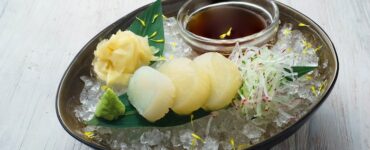A vegan diet excludes all animal products, including meat, poultry, fish, eggs, and dairy. Some people adopt a vegan lifestyle for ethical reasons, while others do so for health reasons. There are many benefits to following a vegan diet, but can going vegan cause headaches?

There is mixed evidence on whether or not a vegan diet can cause headaches. Some studies have shown that a vegan diet can lead to more headaches, while others have found that there is no difference in the number of headaches experienced by vegans and non-vegans. It is possible that the type of foods eaten on a vegan diet may play a role in whether or not headaches occur.
Link Between Veganism and Headaches
Headaches are a common problem, with approximately half of all adults experiencing at least one headache in any given year. While the cause of headaches can be difficult to determine, there is some evidence that veganism may be linked to them.
A recent study published in the journal Nutrients found that people who followed a vegan diet were more likely to report headaches than those who consumed meat and other animal products. The study’s authors suggest that this may be because vegans are missing certain nutrients that are important for preventing headaches, such as vitamin B12 and magnesium.
How Veganism Can Cause Headaches
There are many potential benefits to a vegan lifestyle. However, one potential downside that is often overlooked is the possibility of developing headaches from lack of protein, iron, and other essential nutrients. While most people who switch to a vegan diet eventually find their own balance and learn which foods work best for them, it is important to be aware of the possibility of headaches in order to take steps to avoid them.
Lack of Nutrients
A vegan diet excludes all animal products, including dairy and eggs. While a vegan diet has many health benefits, it can be low in certain nutrients, which can lead to headaches. Some of the nutrients that are often low in vegan foods are iron, zinc, and vitamin B12. Deficiencies in these nutrients can cause a variety of health problems, including headaches. To ensure that you’re getting enough of these nutrients, it’s important to eat a varied and balanced diet.
Food Allergies
Food allergies are a common problem for many people. Some people experience headaches after eating certain vegan foods. This may be due to the lack of protein in some vegan diets. Headaches may also be caused by food allergies to soy, wheat, or other foods. If you experience frequent headaches after eating vegan foods, you may want to consult with a nutritionist to make sure you are getting enough protein and other essential nutrients.

Dehydration
If you’re vegan, you may be at risk for dehydration. Dehydration is a common side effect of veganism, and it can lead to headaches. To prevent dehydration, make sure to drink plenty of fluids, especially water.
You may also want to consider drinking fruit juices and vegetable juices, which are high in water content. In addition, eat plenty of fruits and vegetables, which are also high in water content. If you experience any symptoms of dehydration, such as headaches, dry mouth, or thirstiness, seek medical attention.
Hypoglycemia
Hypoglycemia, or low blood sugar, is another common side effect of veganism. This can lead to headaches, fatigue, and irritability. In severe cases, it can lead to seizures or a coma. To avoid hypoglycemia, make sure to eat regularly and include plenty of high-energy foods in your diet. Good choices include nuts, seeds, avocados, and bananas. If you are feeling low energy or lightheaded, have some juice or a piece of fruit.
Stress
It’s no secret that making the switch to a vegan lifestyle can be stressful. Suddenly, you have to relearn everything you know about food and nutrition, and come up with new recipes and meal ideas. The stress of transitioning to a vegan lifestyle can also cause headaches.
Here are some tips for reducing stress and avoiding headaches:
- Take your time transitioning. There’s no need to go from a meat-heavy diet to a completely vegan one overnight. Start by removing meat from your diet one day a week, then two days a week, and so on. This will give you time to adjust to the new way of eating and will make the transition less stressful.
- Join or create a vegan support group online or in your community. This will allow you to connect with other people who are going through the same thing, which can be really helpful.
- Get a good cookbook. Most vegan cookbooks are filled with delicious recipes that will help you reduce stress and headaches.
- Make sure to eat enough protein and healthy fats. These will keep you feeling calm and satisfied, which will make it much easier to stick with your new diet!
Symptoms of A Vegan Headache
Headaches are one of the most common medical complaints, with more than 45 million Americans experiencing them each year. While most headaches are not caused by a lack of animal products in the diet, vegans may be more prone to certain types of headaches. This is because a vegan diet can be low in certain nutrients, including vitamin B12 and iron.
A vegan diet can also be high in processed foods and unhealthy fats, which can lead to inflammation and pain. Some of the most common symptoms of a vegan headache include throbbing pain, sensitivity to light or sound, nausea, and vomiting.
If you experience frequent headaches and believe they may be related to your diet, see your doctor for a proper diagnosis. There may be other causes of your headaches that require treatment other than dietary changes.
Conclusion
In conclusion, veganism has been linked to headaches in some people. However, more research is needed to determine if this is a cause-and-effect relationship. If you are considering going vegan and are worried about potential headaches, talk to your doctor first to see if this is the right diet for you.









